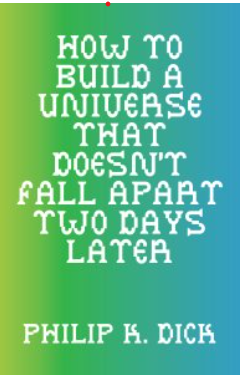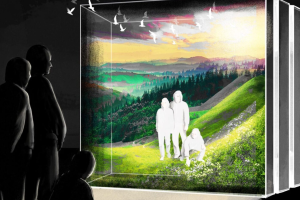- 8 views

How To Build A Universe That Doesn't Fall Apart Two Days Later
In the surreal setting of Disneyland in 1978, visionary science fiction author Philip K. Dick gives a stunning lecture on the uncertain nature of reality, the power of fiction and the quest for authentic human experience in an increasingly mediated world.
Thinking about many of the aspects that define our modernity - artificial intelligence, social media, increasingly sophisticated propaganda - Philip K. Dick's voice can be heard, as amused as it is worried: "I told you so". Described by critic and theorist Fredric Jameson as the "Shakespeare of science fiction", Dick is today the best-known science fiction writer of the 20th century. His worlds and characters have filled our screens and shaped our imaginations of the future and the present: his 1968 novel Do Androids Dream of Electric Sheep? became Ridley Scott's Blade Runner; his 1977 novel A Scanner Darkly was adapted into a film of the same name by Richard Linklater; Paul Verhoeven and Steven Spielberg have also adapted his writings into feature films. Something about Dick's vision of the world, extreme in its concepts and imagery, but always rooted in real anxieties, has appealed to many of America's greatest storytellers.
